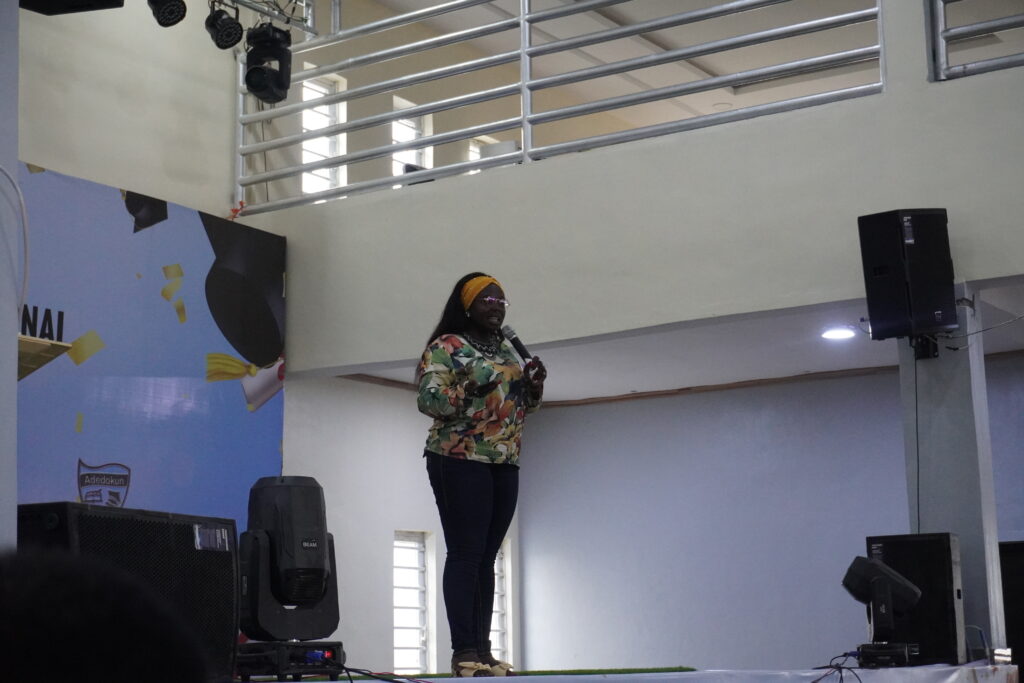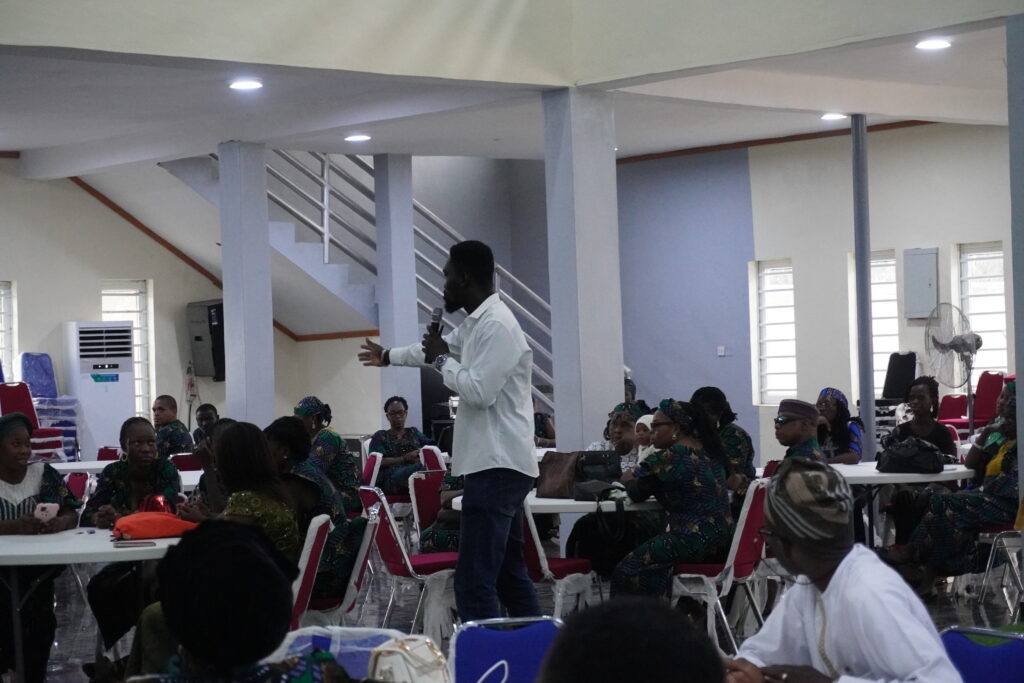
World Teachers’ Day: Shindara Ibiyemi hosts workshop on supporting student mental health
…Joins psychologist, Ololade Awaye, to sensitise secondary teachers
By Esther Agbo
In commemoration of World Teachers’ Day, a mental health advocate, Ibiyemi Shindara, organised a mental health workshop for teachers on October 5, 2024, at Adedokun International School, Iyana Iyesi campus.
The event, themed “Bridging the Gap: Equipping Secondary School Teachers for Adolescent Mental Health Awareness,” was put together to empower educators with the tools needed to support their students’ emotional, neurological and social well-being.
The workshop, facilitated by Shindara, drew from her personal experience with anxiety during her secondary school years. Shindara’s goal was to provide teachers with insights into how to better recognise and manage mental health issues among their students.
She was joined by a guest speaker, Ololade Awaye, a psychologist specialising in ADHD, depression, and anxiety, who emphasised the crucial role teachers play in identifying early signs of mental health struggles in adolescents.
“As a teacher, you spend a lot of time with your students, and this is very integral, so the teacher will most likely, definitely be the first person to tell when a child is going through something. You will see the signs, you will have your observations. You will be the first person to be aware of your students’ mental health,” Ololade said.
Addressing the attendees, Ololade explained how mental health challenges affect both adults and children, urging teachers to be vigilant in recognizing signs of emotional distress. She introduced the concept of multiple intelligences and emotional health indicators, such as IQ (intelligence quotient), EQ (emotional quotient), SQ (social quotient), and AQ (Adversity quotient). Ololade noted that understanding these indicators could help students develop resilience, manage their emotions better, and improve their overall well-being.

In her words, “The IQ is the intelligence Quotient of a child. That’s the ability for you to use it, to understand, to calculate etc.
“Emotional quotient of a child is being self-aware, managing yourself, relationship management. Social quotient, that’s the SQ, how to teach your student how to care for one another.
“Adversity quotient is the ability to come back to yourself after a failed endeavour. It happens to adults, It also happens to children.
“If as a teacher, you can understand all of these quotients in your student, trust me, it will be very helpful.”
The workshop also featured breakout and panel sessions. During the breakout session, teachers engaged in small group discussions centred on the topic: “As a teacher, what will you do differently to support/help your students’ mental health?”
The discussions highlighted practical steps educators can take to address the emotional and psychological needs of their students. They laid emphasis on how building trust, showing compassion, involving parents, and collaborating with mental health professionals were essential strategies in creating a positive and nurturing environment for students.
Moreover, the panel session which comprised Shindara, Ololade, and poet, Pamilerin Jacob, highlighted the importance of addressing mental health issues with consistency and understanding, touching on how mental health conditions like anxiety, depression, and social anxiety need to be taken seriously and managed carefully.

The panellists stressed the significance of having supportive communities and environments, including schools, where teachers and parents play a vital role in addressing the mental health challenges of students, emphasising the importance of self-care, sleep, and emotional regulation for both educators and individuals dealing with mental health issues.
Speaking to journalists at the event, Ololade underscored the significance of mental health awareness, particularly in schools, where early intervention can prevent long-term challenges. She called on teachers to prioritise speaking out about mental health issues, encouraging rest, and seeking professional help when necessary. She warned that without proper attention, there could be a looming global mental health crisis, especially among young people.
She said, “For any individual going through any mental difficulty, emotional difficulty, I want you to know that you are not alone. We are all going through different versions of the same thing. But the very first thing you need to do is to speak out.
“When you speak out, it is like a step taken to basically walk through the problem that you are going through.
“And if there is this difficulty, please reach out to a professional. It goes a long way. It is extremely important.”
Shindara, who also spoke in an interview, explained how her personal battle with anxiety in secondary school inspired her to organise the workshop. Initially misdiagnosed with asthma, she shared how her eventual diagnosis of anxiety became the driving force behind her passion for mental health advocacy. Through the Psychebabble Foundation Fellowship, Shindara has dedicated herself to educating teachers and students about mental health issues to spread awareness.
“Apart from the fact that I am very passionate about mental health, and I am a mental health advocate, it stemmed from my personal experience, my personal battle with mental illness.
“When I was in SS3, that was when I started battling with anxiety, and everyone thought it was asthma, even though there was no medical report that could show that it was asthma. So it was when I officially got diagnosed that I figured that, oh, it was actually anxiety that I was dealing with at that time. So since then, I have been really passionate.
“And thankfully, I got into the Psychebabble Foundation Fellowship, and this is a compulsory project. So I figured that this is an opportunity for me to share my story. This is also an opportunity for me to sensitise the teachers about mental health,” Shindara stated.
The Chairman and Founder of Adedokun International School, Engr. Niyi Adedokun, also spoke at the event. He lauded the initiative and emphasised the importance of equipping teachers to recognise and manage mental health challenges, both in themselves and their students. He thanked the workshop organiser, Shindara and the guest speaker, Ololade, for their efforts in “training the trainers” and empowering teachers to pass on critical mental health knowledge.
He encouraged teachers to show love, care, and understanding to students facing difficulties and to seek professional help when needed. He further stressed the importance of self-awareness, continuous learning, and breaking the stigma surrounding mental health by speaking out and refusing to feel dejected or victimised.




